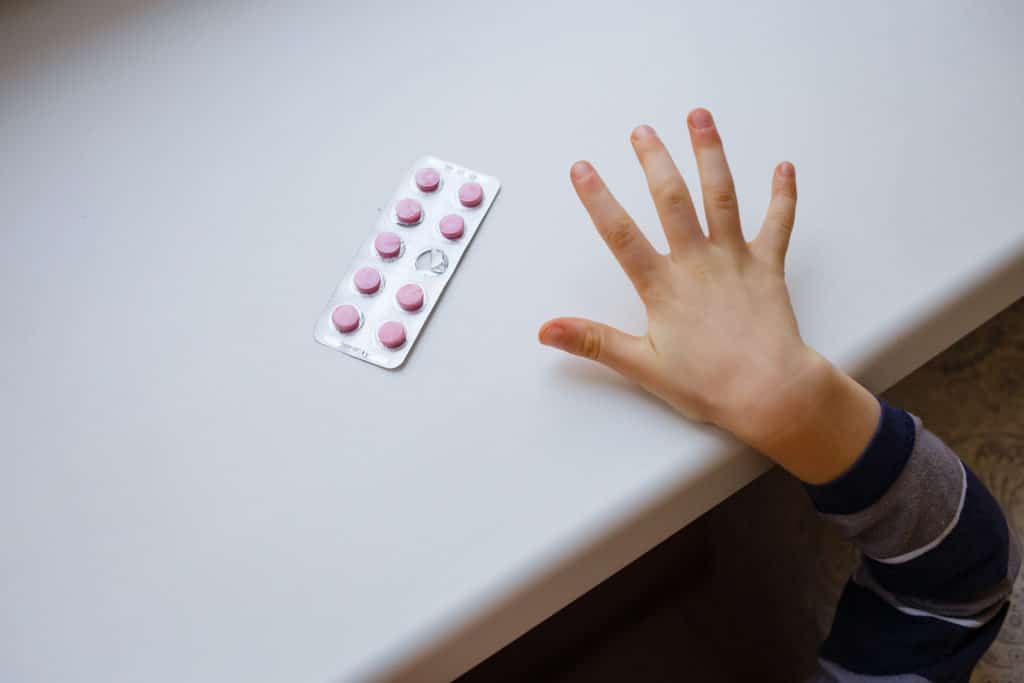
Medicines are essential in treating any medical condition or disease. For even the slightest misfunction of our bodies, we reach out for over-the-counter medication to feel better. The advances in medicine have saved many lives, but we must pause to think about its risk from misuse or accidental exposure.
Unintentionally, many drugs, including narcotics, are piled up in our medicine cabinets over time. What was once helpful for you can be harmful to others now. These expired medicines, if not disposed of properly, can cause significant health issues or poisoning.
The rate of prescription drug abuse is alarmingly high, and so are the number of overdoses and accidental poisonings from these drugs. According to the American Association of Poison Centers, 294,317 cases of improper medicine use in 2019, and about 9% of those cases involved accidental exposure to another person’s medicine.
The Centers addressed 2.6 million cases through calls the same year. Out of the total human exposure cases, 49 percent of issues involved pharmaceuticals.
(Mayo Clinic, 2021)
As responsible prescription drug users, we are tasked with disposing the excess medicines which are no longer in use. Read the disposal instructions provided for over-the-counter or prescribed drugs. If there are no specific instructions on the packaging, you can opt for any of these options:
Drug Take-Back Programs
The U.S. Drug Enforcement Administration (DEA) sponsors National Prescription Drug Take-Back Day nationwide.
In April 2021, the DEA’s National Prescription Drug Take-Back Day collected 829,543 pounds (419.7 tons) of unused, expired, and unwanted medications across the country. The DEA and its law enforcement partners have made a total collection of 14,524,391 pounds medications since the program’s inception in 2010. (Press Release, DEA, 2021)
There are many drug take-back programs run by local communities too. Speak to your local officials to find the closest location in your community. Alternatively, contact your pharmacists to see the different options, such as drop-off boxes, mail-back programs, etc., to dispense unused or surplus medicines safely.
Drain/Flush the Medicines
A few medicines, especially pain killers, may have a high content of opioids and fentanyl, generally used during treatments or post-surgery medication. If these medicines are consumed accidentally or misused, they can make us sick. Flush these surplus medicines down the toilet or sink at home. Refer to the U.S. Food and Drug Administration’s (FDA) flush list to see if your medicine is on the list.
Fentanyl patches are a potent pain-relief prescribed medication. It can be harmful and even deadly to other people not advised to use it. Even after using the patch, a good amount of the drug remains in it. It can harm any person or animal who picks it accidentally. Use the safest means possible when disposing of this and other narcotic drugs. Your pharmacist can assist you with this. (FDA, 2020)
Dispose of Medicines in the Trash
The OTC and prescribed medicines can be dumped into your household trash, except those on the FDA flush list mentioned above. A take-back program may not be readily available in some places, so put these medicines together and throw them in the trash. These drugs can be in the form of pills, drops, liquids, patches, creams, etc.
Take these few important steps before disposing of these medicines:
- Separate the medicines from their respective bottles and containers. Throw these original boxes in the bin. For drugs, mix them with something inedible like dirt, ground coffee, or cat litter and then throw them in the trash. This step will deter any misuse of the medicines.
- Put the medicine mixture in a storage bag, empty can, or any other container to prevent the drug from spilling or getting mixed with other items in the trash.
- Remove all the personal information labeled on the packaging to safeguard your privacy and identity. Then, throw the packaging in the garbage.
(Sissons , 2021)
Don’t forget to dispense needles and syringes correctly. It will prevent others from getting any accidental cut or puncture. Similarly, inhalers can be dangerous if they are punctured or are thrown in an incinerator. Connect with a local trash or recycling center to know the correct disposal method for inhalers or any aerosol drug.
Speak to your health care provider or your local pharmacist if you have more related questions. It’s our goal to keep you, your family and friends safe in your home. It’s up to us to be responsible prescription drug users.
Works Cited
Staff, M. C. H. S. (2021, March 22). Medication disposal: Why, how to safely clean out your medicine cabinet. Mayo Clinic Health System. https://www.mayoclinichealthsystem.org/hometown-health/speaking-of-health/medication-disposal-safely-clean-out-your-medicine-cabinet.
DEA, P. R. (2021, May 3). DEA and PARTNERS announce results of 20th National prescription DRUG take back day. DEA. https://www.dea.gov/press-releases/2021/05/03/dea-and-partners-announce-results-20th-national-prescription-drug-take.
FDA, C. for D. E. and R. (2020, January 10). Drug disposal: Fda’s FLUSH list for certain medicines. U.S. Food and Drug Administration. https://www.fda.gov/drugs/disposal-unused-medicines-what-you-should-know/drug-disposal-fdas-flush-list-certain-medicines#FlushList.
Sissons , B. (2021, July 29). Medication disposal: How-to guide for different types. Medical News Today. https://www.medicalnewstoday.com/articles/327319#needles-and-syringes.
